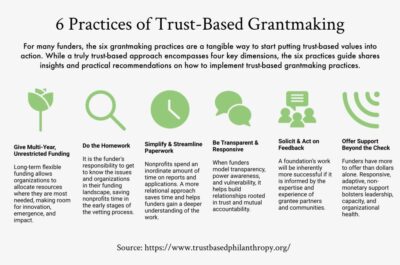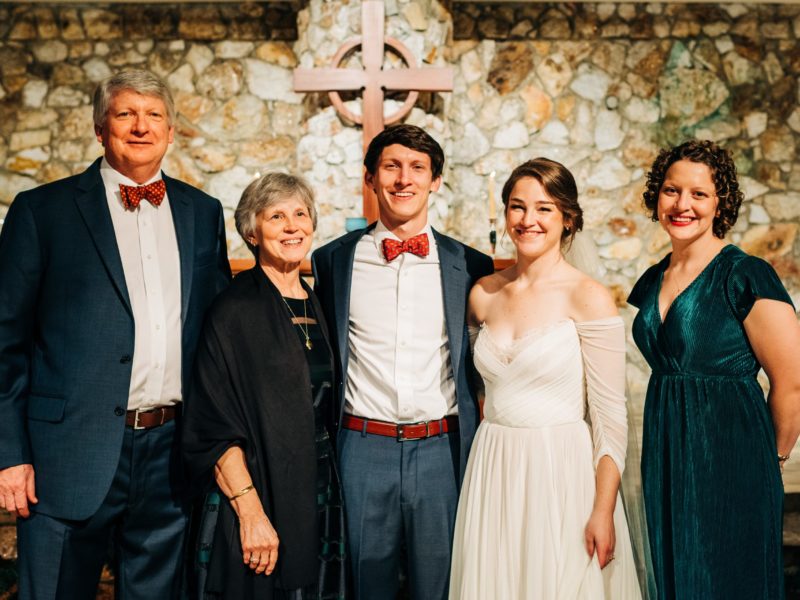
Embracing Trust-Based Philanthropy to Create Change
Defining trust-based philanthropy, why it’s needed and how you can see it in our community
When thinking about building relationships, there are key attributes that come to mind: communication, honesty and authenticity. While these are all essential to relationships, it is trust that will transform a connection into something stronger.
Trust is the invisible string that ties together every interaction, a catalyst that turns a new partnership into a meaningful relationship. Trust-based philanthropy recognizes that authentic connections, built on trust, are the foundation of sustainable and impactful change, proving that the power of philanthropy extends beyond financial support; it evokes shared understanding and mutual respect.
United Way of Greater Charlotte’s Chief Impact Officer Kathryn Firmin-Sellers participated on a panel facilitated by Erika Troutman (Historic Westend Partners) and Janeen Bryant (Community Building Initiative), and hosted by Allegra Westbrooks Regional Library, discussing the misconceptions and doubts surrounding trust-based philanthropy.

Practices of Trust-Based Philanthropy.
Firmin-Sellers, along with fellow panelists John Brothers (T. Rowe Price Foundation), Jamall Kinard (Lakeview Neighborhood Alliance) and Chantias Ford (Trust-Based Philanthropy Project), talked through the meaning of trust-based philanthropy and highlighted the importance of using trust-based philanthropy as a tool for true social impact.
What is Trust-Based Philanthropy?
Trust-based philanthropy is a charitable approach that reimagines the relationships between donors, nonprofits and communities to rebalance power and decision making. Trust-based philanthropy is not entirely new; it’s one outcome of years of debate within the world of philanthropy between donors, nonprofits, activists and academics. At its core, it is a partnership model between funders, nonprofit organizations, practitioners and communities that acknowledges the unique needs and capacities of all stakeholders.
John Brothers, President at T. Rowe Price Foundation, stated that trust-based philanthropy is an ongoing movement, comparing it to wellness. Just as there is no immediate, one-time fix to a lifetime of wellness, there is no immediate, one-time fix to support communities in need. There are many factors involved in the process, you have to be committed to the goals and you have to have consistency in order to see progress.
“The idea is that every day is an ongoing effort for us to figure out what stops us from having a true relationship with the local community,” Brothers said. “It’s an ongoing effort of looking in the mirror and using the things that we’re creating to help us make sure, ‘are we better today than we were yesterday?’ And ‘what are the gaps that we have right now that we have to continually get better at?’ And there are a lot of things that we’re doing wrong every day that we’re trying to get better at.”
Brother also noted that before joining the trust-based philanthropy movement, you have to recognize any damage you’ve caused in a community or to residents before going in to create change. Reconciliation is necessary to build trust with community leaders and nonprofits.
After you reconcile, you need to start listening, and you must be mindful of how you listen to community leaders and nonprofits. What do residents want to see in their community? How do they want decisions to be made? By opening up this line of communication, you can begin working together for change.
Click here to continue reading the story on UnitedWayGreaterCLT.org.




